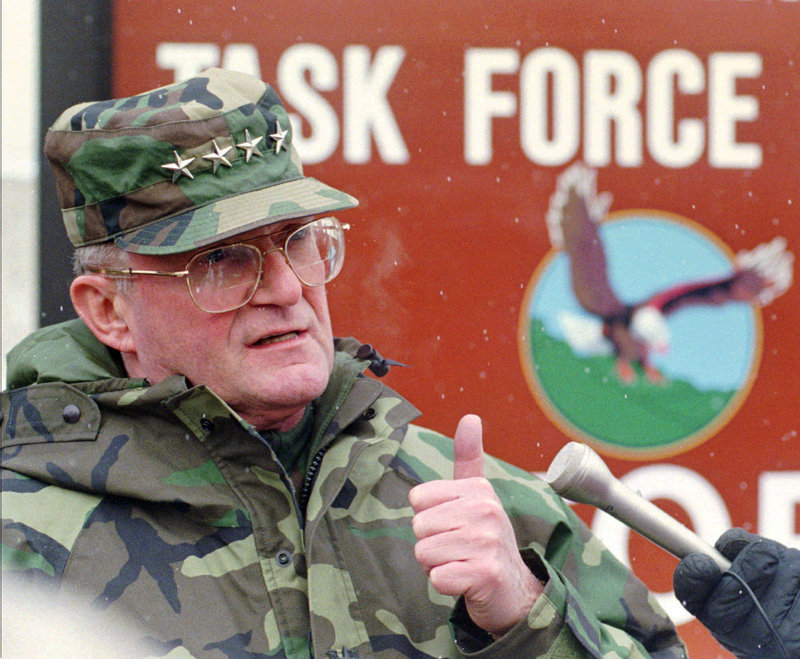SEATTLE – Retired Army Gen. John Shalikashvili, the first foreign-born chairman of the Joint Chiefs of Staff, who counseled President Bill Clinton on the use of troops in Bosnia and other trouble spots, has died, the Army said in a statement. He was 75.
Shalikashvili died Saturday morning at Madigan Army Medical Center in Washington state following complications from a stroke suffered in August 2004 that paralyzed his left side.
President Obama said Saturday that the United States lost a “genuine soldier-statesman,” adding in a statement that Shalikashvili’s “extraordinary life represented the promise of America and the limitless possibilities that are open to those who choose to serve it.”
The native of Poland held the top military job at the Pentagon in the Clinton administration from 1993 to 1997, when the general retired from the Army. In his later years, he worked as a visiting professor at Stanford University’s Center for International Security and Cooperation.
Clinton pointed out that “Gen. Shali” made the recommendations that sent U.S. troops into harm’s way in Haiti, Rwanda, Bosnia, the Persian Gulf and a host of other world hotspots that had proliferated since the end of the Cold War.
“He never minced words, he never postured or pulled punches, he never shied away from tough issues or tough calls, and most important, he never shied away from doing what he believed was the right thing,” Clinton said.
Defense Secretary Leon Panetta said in a statement that he relied on Shalikashvili’s advice and candor when he served as Clinton’s chief of staff during the foreign policy crises in Haiti, the Balkans and elsewhere.
“John was an extraordinary patriot who faithfully defended this country for four decades, rising to the very pinnacle of the military profession,” Panetta said. “I will remember John as always being a stalwart advocate for the brave men and women who don the uniform and stand guard over this nation.”
In a 1997 interview, Shalikashvili said American military and civilian authorities need to cooperate more when they decide to get involved in such trouble spots, because so much of what the military is asked to do involves humanitarian or peacekeeping operations.
For example, the military might need assistance from the Justice Department to help set up police forces, or advice from the State Department on economic aid.
Shalikashvili was head of the Joint Chiefs when the “Don’t ask, don’t tell” policy on gays in the military was adopted. He had argued that allowing homosexuals to serve openly would hurt troop morale and undermine the cohesion of combat units. Years later, though, he said that he changed his mind on the issue after meeting with gay servicemen.
“These conversations showed me just how much the military has changed, and that gays and lesbians can be accepted by their peers,” Shalikashvili wrote in a January 2007 New York Times opinion piece.
Send questions/comments to the editors.



Success. Please wait for the page to reload. If the page does not reload within 5 seconds, please refresh the page.
Enter your email and password to access comments.
Hi, to comment on stories you must . This profile is in addition to your subscription and website login.
Already have a commenting profile? .
Invalid username/password.
Please check your email to confirm and complete your registration.
Only subscribers are eligible to post comments. Please subscribe or login first for digital access. Here’s why.
Use the form below to reset your password. When you've submitted your account email, we will send an email with a reset code.